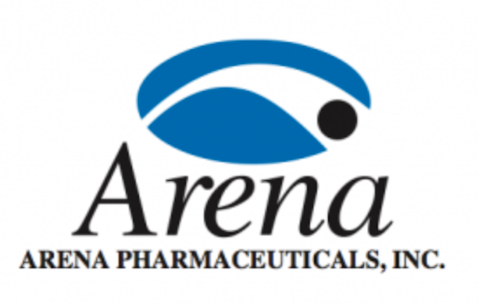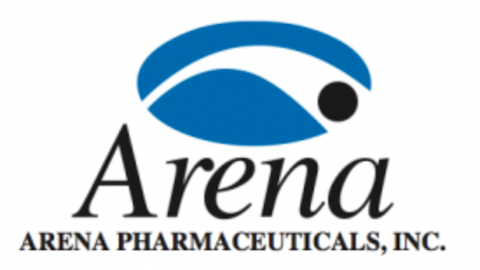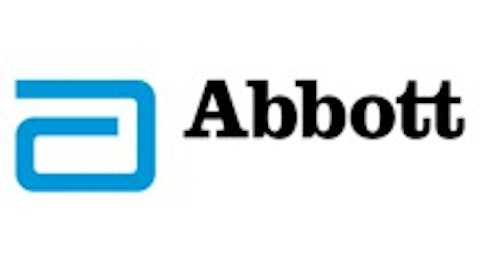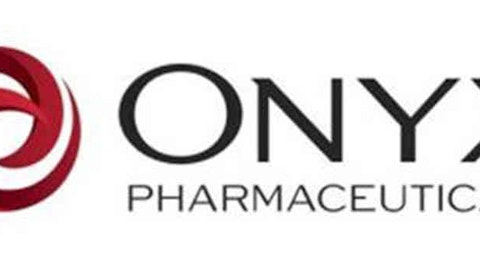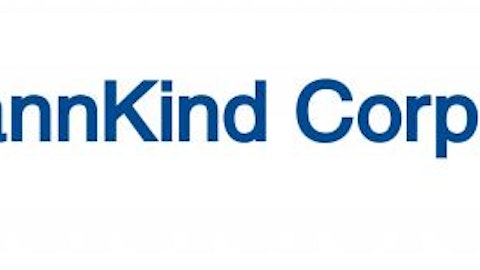After years of anticipation by doctors, patients, and investors, Belviq was finally launched last week for treatment of obesity, type 2 diabetes and overweight patients with a weight-related health problem. Belviq is manufactured by Arena Pharmaceuticals, Inc. (NASDAQ:ARNA) and distributed in the USA by Eisai.
Belviq is the first weight loss drug approved in 13 years by the FDA. Another drug approved bit later was Qsymia by VIVUS, Inc. (NASDAQ:VVUS). Since Qsymia is a combination of existing generics it didn’t need to go through DEA scheduling which caused a delay in the launch of Belviq. Despite high expectations set early on by several analysts, the launch of Qsymia has been, for the most part, disappointing for a variety of reasons including safety concerns, a risk mitigation and evaluation program (REMS) required by the FDA, and generic competition. Belviq has a completely different mechanism of action (see competitive advantages in the list below).
Belviq vs. Qsymia Launch
One question on the minds of many investors who are not too familiar with the obesity space is, why would Belviq’s launch be any better than Qsymia’s. Belviq’s efficacy is comparable to Qsymia’s recommended dosage, and while their trial designs were very different, there’s never been a study to compare the efficacies of the two drugs.

Belviq’s average completer weight-loss was 8.2%, and responders lost an average of around 12% in a year. Here’s a video of one gentleman who lost over 50 pounds on Belviq (click for the video). Completer and responder data are the best measure of efficacy according to some of the top obesity treatment experts.
I expect the launch of Belviq will be far better than Qsymia’s for the following reasons:
1. Belviq is a new novel new single agent available to doctors which has good efficacy and excellent safety profile, vs. Qsymia which stimulates the metabolism and is a combination of two generic drugs. In this video, Dr. Sue DeCotiis, a weight loss specialists explains why she’s excited about Belviq:
“it’s brand new type of medication… the classic weight loss medications are stimulants. They keep your hunger down by making you jittery and hyper, but a lot of patients can’t tolerate them. This works directly on the brain and it turns off that hunger impulse…”
Being a single novel agent the doors are open to combination therapies. Arena Pharmaceuticals, Inc. (NASDAQ:ARNA) is in discussions with the FDA on such studies, e.g., in combination with phentermine.
2. Safety is the number one concern for physicians when it comes to weight loss drugs and Qsymia has an inferior safety profile compared to Belviq. Pregnant women on Qsymia have a higher risk for cleft lip birth defect. Belviq’s most common side effect is a mild, temporary headache early in treatment.
3. Not only Belviq does not stimulate the metabolism, it did not cause any heart problems in 8000 patients on whom it was tested. Thousands of echocardiograms did not show any sign of heart issues in the patients. One reason for this is the superior technology of Arena Pharmaceuticals, Inc. (NASDAQ:ARNA) which allows Belviq to be an agonist of the serotonin 5-HT2C receptors without impacting the valvulopathy receptor, 5-HT2B. Doctors like this heart-safety aspect of Belviq because obesity drugs have traditionally not been heart-friendly.
4. While VIVUS, Inc. (NASDAQ:VVUS)’s distribution is constrained by FDA’s REMS requirement, Arena Pharmaceuticals, Inc. (NASDAQ:ARNA) has the marketing muscle of an experienced Big Pharma, Eisai, behind it. Eisai has experience launching blockbuster drugs in the same space in the past, has some 207 sales reps dedicated to Belviq, and a team of 50 focusing on insurance reimbursements. One week within launch Belviq is available in 20,000 pharmacies nationwide and is already being advertised in various publications in a variety of fields of medicine, e.g., in Contemporary OB/Gyn.
5. Belviq is also a diabetes drug. The Bloom DM study produced a 27 point drop in the fasting glucose level, along with a 0.9 point drop in the hemoglobin A1C level; improvements which are comparable to many of the diabetes pills that are in use today.
Doctors and Patients speak out
Two of the doctors who will be prescribing Belviq state their reasons for doing so in these two videos: a physician from Harvard Conference on Medical Weight-loss, and a NewYork-Presbyterian/Weill Cornell physician.
The reason I believe in Belviq’s success is the mechanism of action. The big enemy of weight gain is appetite; when it’s there a person eats and it’s a kind of thing that can’t be fought because fighting it causes cognitive dissonance, psychological friction, which leads to loss of energy which means the fight is lost. Belviq tames appetite at a very fundamental level: stimulating the brain cells that are associated with satiety. So the person finds himself or herself going through the day with much less appetite for eating, smoking, craving.
Now that we’ve outlined why Belviq’s launch should be better than Qsymia’s, let us look at the sales expectations.
Revenue expectations
Analysts are all over the map with their sales projections. One of the more bullish firms, Jefferies, in a recent research note to clients outlines three scenarios, and the most realistic one was chosen to determine the target price of $12 for ARNA. In this “target scenario” Jefferies expects Eisai to generate revenues of $32.7 million in CY2013.
Is Jefferies’ target scenario achievable? If we take a conservative stance and discard June due to the free 15-day offer Eisai is providing on www.belviq.com. Eisai has six months to reach this target. Divided by ~207 sales reps, each rep has to generate $158,000 worth of Belviq sales in the next six months, which is around $26,000 per month which is around 195 bottles of Belviq at the discounted price of around $135 (retail price is around $210 and Eisai is providing a $75 coupon per month for a year).
$135 a month even for a person without insurance is not that much. Many people spend at least that $4.5 per day on coffee, snacks, cigarettes, beer, etc. Belviq is cheaper than many weight-loss programs out there which for the most part have been ineffective in combating the obesity epidemic.
I mention cigarettes because there’s scientific evidence that Belviq may treat nicotine addiction, and Arena Pharmaceuticals, Inc. (NASDAQ:ARNA) has indicated they will conduct a smoking secession trial.
Insurance coverage
Insurance coverage for obesity drugs is increasing. Lonnel Coats recently stated in an interview with CNBC that 30% of insurers currently cover BEVIQ. Mr. Coats expects the coverage to go up to 50-70% within 24 months. Currently the US healthcare system carries a burden of around one billion dollars a day in treating obesity and T2DM. Insurance companies have an incentive in covering obesity drugs because a reduction in weight helps some 50 conditions which result in being overweight.
A big boost to obesity drug makers, e.g., Arena, Vivus, and Orexigen Therapeutics, Inc. (NASDAQ:OREX) is this week’s the AMA declaration that obesity is a disease. This will naturally lead to increased insurance coverage.
“Recognizing obesity as a disease will help change the way the medical community tackles this complex issue that affects approximately one in three Americans…The AMA is committed to improving health outcomes and is working to reduce the incidence of cardiovascular disease and type 2 diabetes, which are often linked to obesity.” Patrice Harris, M.D.
Stock price
If we assume each sales rep has about 100 callable doctors, half of those doctors need to write one prescription per month early in the launch and by December each doctor needs to write one per month to reach to justify Jefferies $12 price target. This is based on the assumption of 2000 weekly scripts starting in July, with a 6% w/w growth rate and 50% responder refill rate. In this model, after 26 weeks (by end of 2013), Eisai generates 30M revenue.
With 85 million Americans adults being obese, 20 million Americans having type 2 diabetes, 80 million Americans having borderline diabetes (A1C between 5.7%-6.4%), 45 million with high cholesterol, and 68 million having high blood pressure, the potential market for Belviq is huge. Expecting doctors to write one prescription per month to justify a $12 stock price is very reasonable.
Recently, Eisai’s CEO, Lonnel Coats indicated in a Bloomberg interview that he expects revenues from Belviq of over $150 million this year. While this was a not a formal communiqué, it is not clear if these are Eisai’s internal goals based on overhead, cost of investments, etc., or if this number was derived though channel checks. Arena’s CEO, Jack Leif has reportedly stated in the company’s recent shareholder meeting that $150 million is conservative! It is also not clear if they meant fiscal or calendar year as Eisai’s fiscal year end with Q1, 2014.
Either way, even achieving half of this goal blows Wall Street’s expectations out of the water and puts Jefferies’ target in the “upside scenario” which calls for a price target of $33. At the same time there is a 57 million share short interest which has purportedly been trying to cap Arena’s stock price with a number of reverse conversions (use of market maker naked short exemption). Despite a 7 million share drop in short interest, shorts need to cover a lot more shares in light of expected robust sales of Belviq. Institutional interest in ARNA has risen to 47% including increase in the holding of even the most conservative firms like Credit Suisse which estimates Belviq to become a blockbuster. For Motley Fool’s take on both companies, please download the reports below.
REZA GANJAVI owns shares of Arena Pharmaceuticals.
The opinions above are not investment advice and are not medical advice.The Motley Fool has no position in any of the stocks mentioned.
The article What to Expect From Arena Pharmaceuticals’ Launch of Belviq originally appeared on Fool.com and is written by REZA GANJAVI.
REZA is a member of The Motley Fool Blog Network — entries represent the personal opinion of the blogger and are not formally edited.
Copyright © 1995 – 2013 The Motley Fool, LLC. All rights reserved. The Motley Fool has a disclosure policy.
